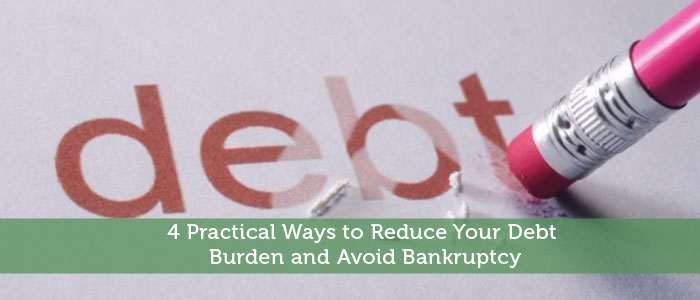Being in debt is embarrassing because it is a factual proof of your inability to manage your finances properly. The embarrassing nature of a debt burden can be amplified by debt collection agencies who don’t usually show empathy when trying to get you to repay your debt.
Unfortunately, the embarrassing nature of debt is minor in relation to the aftereffects of filing for bankruptcy when you are unable to repay your debts. Filing for bankruptcy will wreck serious havoc on your finances and severely limit your ability to get back on your feet financially. To begin with, your assets might be liquidated to cover the debts you owe. Secondly, you might be required to continue making payments to your creditors for as much as 5 years if you file a chapter 13 bankruptcy.
If you are struggling under a massive debt burden and there doesn’t seem to be any hope of a respite, you may want seek out debt counseling assistance for guidance. This piece provides practical insight that you can leverage to reduce your debt burden and avoid bankruptcy.
1. Refinance your mortgage
Refinancing your debt might be a great way to pay down your debt and avoid the sinkhole of bankruptcy especially on a mortgage-related debt. Refinancing allows you to reduce the monthly lower payment, get a fixed-interest rate and possibly a longer term. You can also refinance your mortgage to a 15-year deal especially if you’ve paid off a good part of your mortgage. You may also want to consider a cash-out refinance loan that allows you to take a oan on your equity on the house. You may also consider a cash-in refinance loan if the real estate is down and the value of your property is lower than the mortgage. Some lenders will also offer you an opportunity to refinance other debts such as car loans or student loans.
Recommended Bankruptcy Posts:
2. Consolidate your debt
Consolidating your debts is another smart way to make your debt more manageable if you want to avoid bankruptcy. Trying to make different payments for multiple debts all at once can be overwhelming especially if you don’t have enough money to make all the monthly payments. A debt consolidation plan helps you to combine all your different debts into a single lump sum for which you are now required to make a single monthly payment. Debt consolidation can also lower your monthly payment but the trade-off is that you’ll need to pay the loan over a longer term. However, you should note that debt consolidation won’t necessarily reduce the total value of your loans.
3. Renegotiate the terms of your loan
If you are bedeviled by a debt burden made of up many credit card debts, you can avoid bankruptcy by renegotiating the terms of your loan with the credit card companies. Credit card companies might be open to negotiating with you to lower your rate if you are an old customer and you have a history of making your payments in good time. When you contact the credit card company about a request to renegotiate your loan terms, you’ll need to provide your current interest rate, how long you’ve kept your account, and any balance transfer offers you have.
4. Snowball your debt
If you are already struggling under a debt burden, chances are that you have multiple loans from different sources. The different loans will have different terms such as interest rates, monthly payment amount, and loan term. Snowballing your debt requires you to list out all of your debt in the order of their size without paying much attention to the interest rate. You then proceed to pay off the smallest loan first while trying to make minimum payments on the rest. You’ll find it much easier and faster to get rid of a small loan but you will get a huge psychological boost from crossing off a creditor from the list of people you owe.
Also compare chapter 7 vs chapter 11 bankruptcy.





